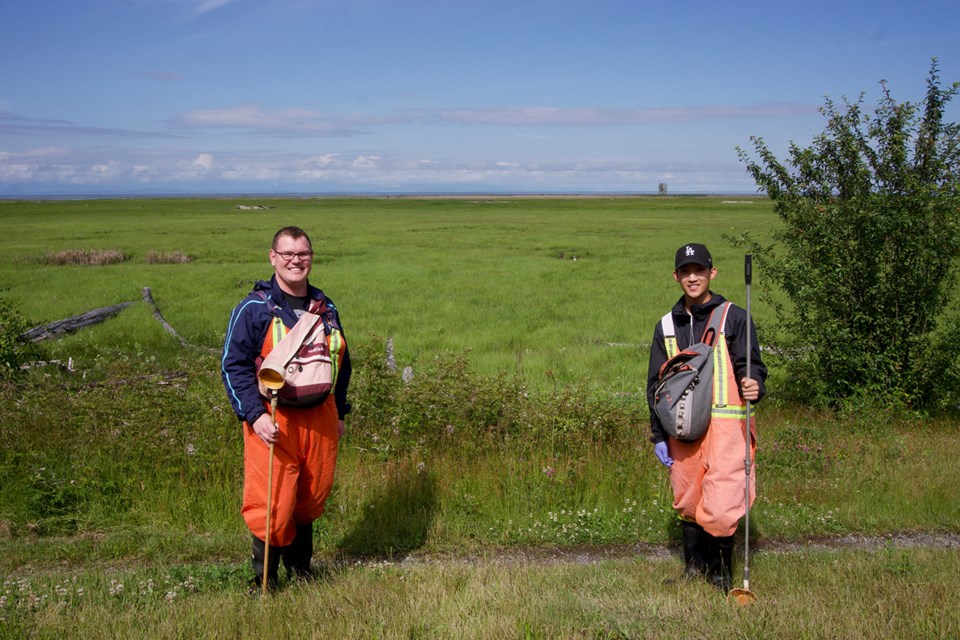For the past three decades, the City of Richmond has been managing the number of mosquitoes in the community.
The management program was developed due to Richmond’s high water table and numerous water-filled ditches, according to city spokesperson Clay Adams.
Currently, he said, the program only focuses on the salt marsh around the West Dyke and ditches that don’t run into fish-bearing waters.
A resident recently spotted two city staff, who work in the program, in the marsh while walking the West Dyke.
And while the program does manage mosquito numbers, it’s not a spray program nor does it eliminate the insects per se, said Adams.
“The program uses a granular biological larvicide that is species specific and only targets larval mosquito populations,” said Adams.
“The larvicide is non-toxic to other organisms such as birds and animals and, once ingested, produces toxins that attack the gut of the mosquito larvae.”
Only ditches and city property – not private property – are treated through the program, he said, and only when a “threshold count” of mosquito larvae is reached.
Surrey utilizes a similar larvicide to manage the number of gypsy moth beetles in that city, said Adams.
However, Adams said that the number of areas that the city treats has diminished over the years, due to tightening legislation around the use of pesticides – including non-toxic types – which is why the city now only focuses on a few areas.
Application of the larvicide is also weather-dependent, said Adams.
“When we experience spells of wet followed by hot weather, conditions are ideal for mosquito breeding. Hot, dry summers are less of an environment for mosquito breeding,” he said.



